Ethiopia
Ethiopia till October 8, 2016 was suffering a major internal security crisis with spreading anti-government protests in its Oromia and Amhara regions. At a point, the protests spread to the capital, Addis Ababa.
Underlying the protests which started in late 2015 was a government plan to extend the boundaries of Addis Ababa into the Oromia region. The move according to activists amounted to land grabs hence the resistance.
The protests, however, became famous more for the heavy security crackdown that it was met with. Deaths and mass arrests were reported with rights groups slamming the government over their handling of the peaceful protests.
A turning point was when violence broke out at the 2016 Irreecha thanksgiving festival of ethnic Oromos. Over 50 people were reported dead according to the government due to drowning but activists and rights groups said as a result of use of live bullets on the Irreecha patrons.
Following the Irreecha deaths, the government declared three-days of mourning for the deaths but a spike in attacks on government and private properties meant that something drastic had to be done. The government opted for a State of Emergency regime imposed for six-months.
It was the first time in over two decades that such a decision had been taken. It will last for six months. ‘‘It may be shortened depending on the improvement on the security front,” local media quoted a senior government official as saying.
Mass arrests were to follow, thousands were detained under the Command Post managing the state of emergency. The government also said it had confiscated a lot of weapons that had been used to cause damage amid the protests.
Later, there was a mass release of detainees according to the government after they had undergone rehabilitation. Several hundreds were also arraigned to court for their involvement in the attacks.
One of the biggest arrests under the curfew was that of Oromo Liberation Front (OFC) leader, Merera Gudina. He was arrested on December 1, 2016 after he returned from a political engagement in Brussels.
The Command Post said he had flouted rules of the state of emergency for meeting with anti-peace elements that were considered as terrorist groups under Ethiopian law. Gudina is currently facing multiple criminal charges.
The United States and United Kingdom issued and maintained their security alerts on Ethiopia whiles calling for reforms by the government. They were joined by rights groups and the United Nations, all of who called for independent probe into the deaths that resulted prior to the state of emergency declaration.
In April this year, the parliament voted to extend the state of emergency for four months. They cited the need to consolidate peace efforts over the initial period. At the time, the government had waived a number of the harsh rules under the measure.
Still in April, a government-sanctioned investigation by the Ethiopia Human Rights Commission (EHRC) said 669 people had been killed during one period in the violence and more than 29,000 people arrested.
The EHRC report has largely been discredited by Oromo activists and rights groups like Human Rights Watch, they insist that the government should allow an independent probe all things being equal.
Addis Ababa has also hosted the U.N. human rights chief during the second term of the curfew. Zeid Ra’ad Hussein, reiterated calls for an independent probe into the protest deaths but the government said it had the capacity to conduct one.
In early August this year, a meeting of lawmakers agreed to lift the state of emergency upon advice of Defence Minister Siraj Fegessa. It brought the duration of the measure to 10-months. Calls for political reforms and respect for protesters rights have not abated with the return to ‘normal’ rule.
The 2017 edition of Irreecha passed off peacefully a little over a week ago. The celebration was carried out without armed security officials. Ethnic Oromos engaged in veiled protests, they mourned those who died a year ago and enjoyed the celebration as they usually did.



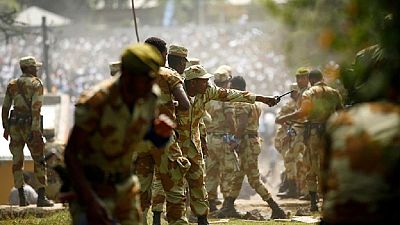

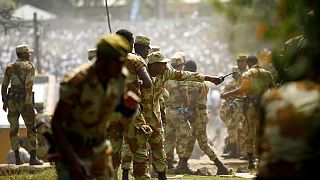
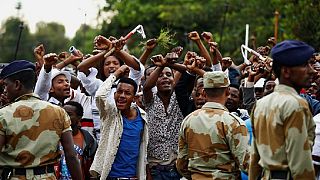
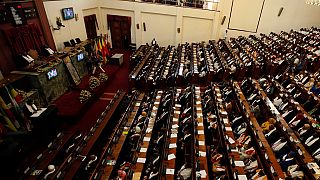
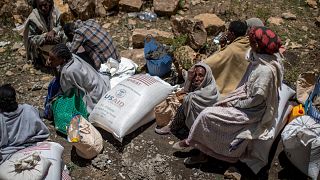
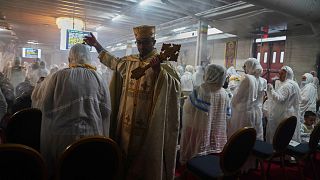
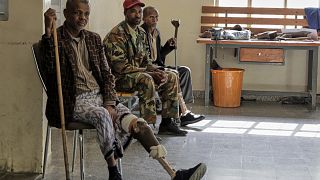



Go to video
Who will be the next pope? A look at potential candidates
Go to video
Ethiopians mark Easter with calls for peace and love amid ongoing conflict
Go to video
Nigerian Court finds club and football federation negligent of Chineme Martins’ death
Go to video
Tunisia: new Human Rights Watch report finds dramatic increase in politically motivated arrests
Go to video
French diplomats given 48-hour notice to leave Algeria
01:01
Tanzania's opposition leader Tundu Lissu arrested after rally